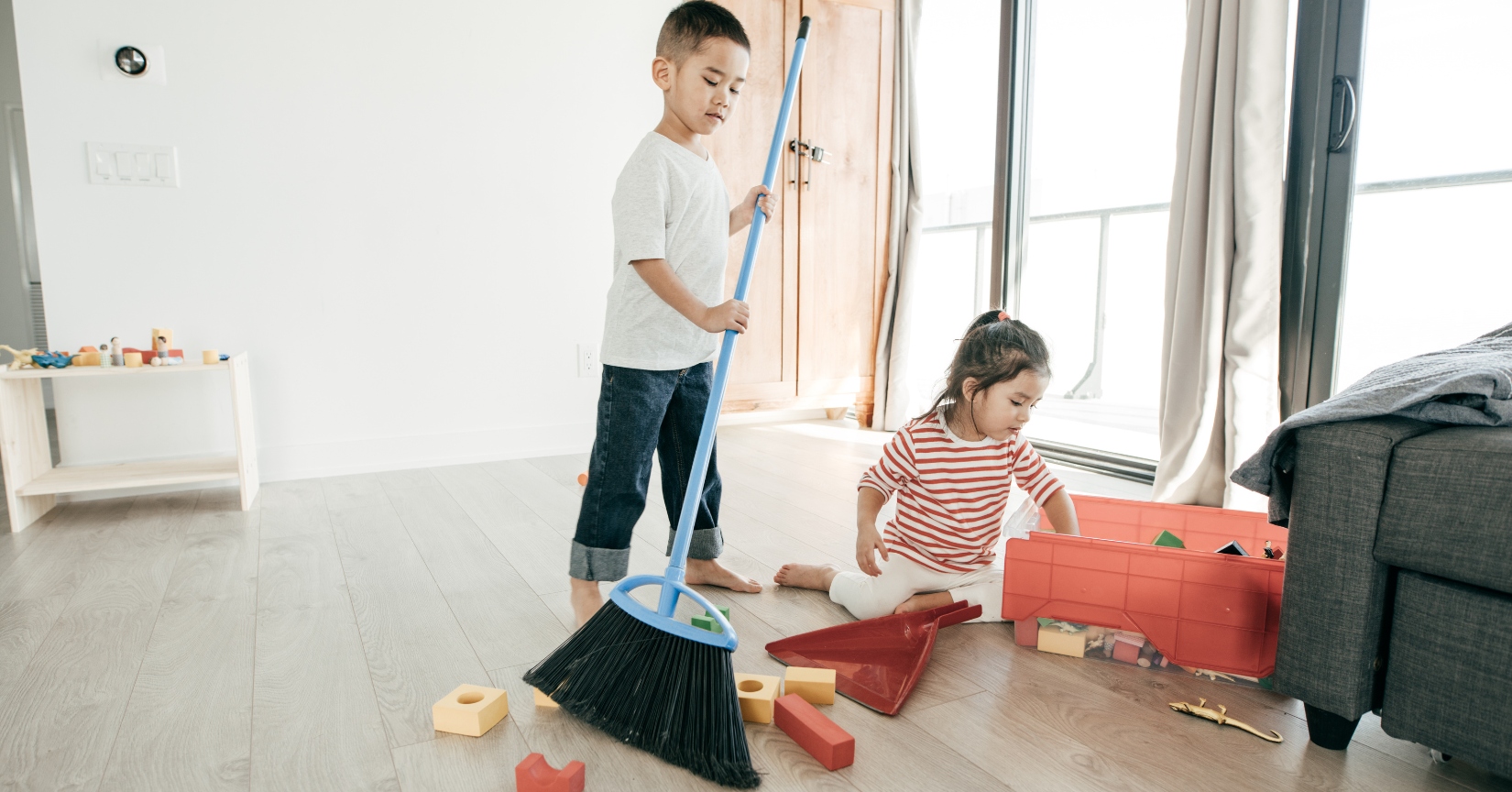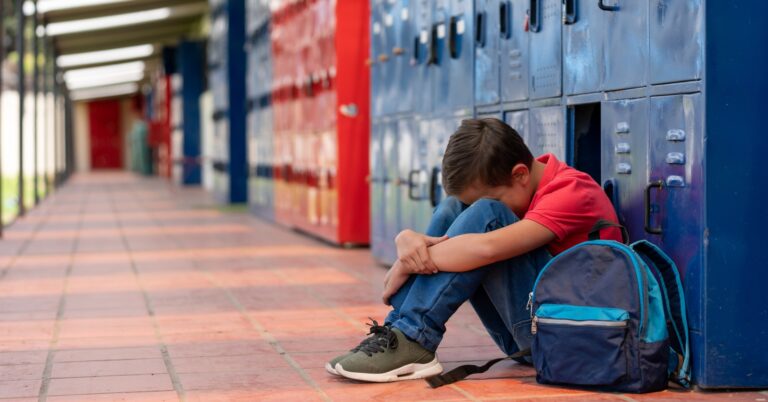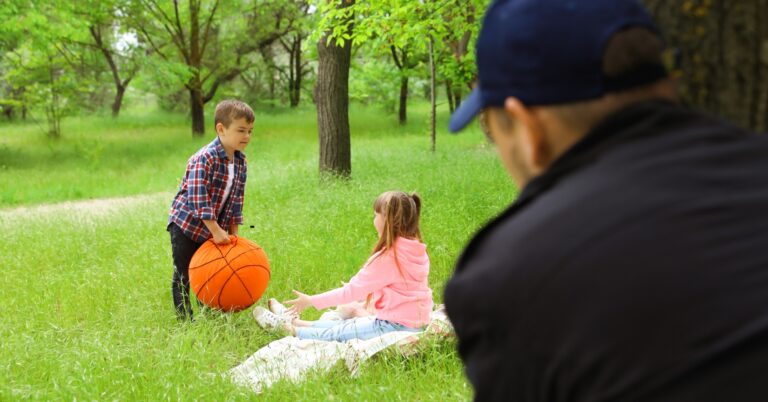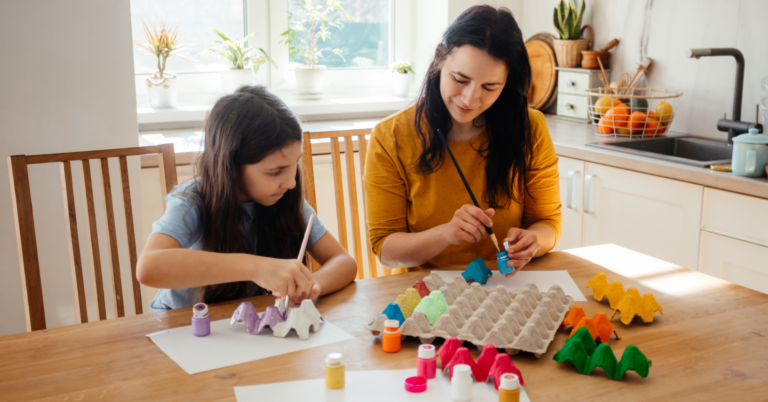Assigning chores to kids is a great way to teach them responsibility. But what tasks are age-appropriate and beneficial?
It’s important to get this right, because the right chores can help your child grow and become more responsible. And let me tell you, there are certain tasks that can really help in this regard.
So, here’s my list of 10 chores to include in your child’s chore chart. I’ve found these chores to be especially helpful in teaching my own children about responsibility. Here’s hoping they help your family as well.
1) Make their bed
Teaching kids to make their bed every morning is a straightforward yet powerful chore.
Why? Because it instills a sense of discipline and starts their day on a positive note. Completing this simple task gives them a sense of achievement first thing in the morning, setting a productive tone for the rest of the day.
And it’s not just me saying this – numerous parenting experts and psychologists back this idea too.
It may take some time for your child to get into the habit, and the beds might not be hotel-standard initially. But stick with it. They’re learning, and before you know it, they will be making their beds without any reminders.
2) Doing the dishes
I remember when I first introduced this task to my kids. They were not thrilled, to say the least. But I explained to them the importance of cleaning up after themselves and contributing to the household.
Slowly but surely, they got into the habit. And now, they take turns doing the dishes without me having to remind them. It’s also helped them understand that every member of the family has a role to play in keeping our home clean and tidy.
Incorporating dishwashing in your child’s chore chart not only teaches them responsibility but also equips them with a life skill that they’ll carry into adulthood.
3) Taking care of plants
Let’s shift gears a bit and talk about a chore that’s slightly different but equally essential- taking care of plants.
Whether it’s a small indoor plant or a full-blown backyard garden, giving your child the responsibility to water and care for plants can be an excellent way to teach them about nurturing and patience.
This chore requires regular attention and the results aren’t immediate. Plants take time to grow and flourish, teaching your child that not all rewards are instant.
4) Sorting and folding laundry
Laundry may not be the most exciting chore, but it’s a necessary one. And it’s a task that can be broken down into smaller parts suitable for different age groups.
For younger children, pairing socks or folding simple items like towels can be a great way to start. As they grow older, you can introduce more complex tasks like sorting laundry by color and eventually operating the washing machine and dryer.
Teaching your child to do their own laundry not only gives them a practical skill they will use their entire life, but also instills a sense of responsibility. They learn that if they want clean clothes to wear, they have to take part in the process.
So, don’t shy away from incorporating laundry tasks into your child’s chore chart. It’s a useful skill set that goes hand in hand with teaching responsibility.
5) Taking out the trash
Taking out the trash is another chore that can teach your kids responsibility. It’s a task that needs to be done regularly and helps maintain the cleanliness and hygiene of your home.
Apart from its practical benefits, taking out the trash also teaches kids about the importance of completing tasks on time. It’s a chore that can’t be postponed for too long, making it a great way to instill punctuality and consistency.
It might not be the most glamorous task, but it’s an effective way to instill responsibility and an understanding of the consequences of delay.
6) Taking care of a pet
Pets are more than just cuddly companions. They also serve as excellent teachers of responsibility for children.
When a child is tasked with feeding the dog, cleaning the fish tank or even just ensuring the water bowl is filled, they are learning to care for another being. This task instills empathy, compassion and, most importantly, responsibility.
Related Stories from Careful Parents
Interestingly, studies have shown that children who grow up with pets tend to have higher levels of empathy and self-esteem. They’re also more likely to be socially outgoing.
If you have a pet at home, don’t miss the opportunity to use their care as a way to teach your child responsibility. If not, even a low-maintenance pet like a fish can serve this purpose.
7) Preparing a simple meal
I’ll never forget the first time my child prepared a simple meal by themselves. It was just a peanut butter and jelly sandwich, but the pride on their face was worth more than any gourmet meal.
This chore, preparing a simple meal, is a stepping stone towards self-sufficiency. It’s also a creative exercise, giving them the opportunity to experiment with different ingredients.
It might get a little messy at first, but that’s okay. The skills they learn and the confidence they gain make it all worthwhile.
8) Sweeping the floor
Sweeping the floor is a chore that can be introduced to kids at a relatively young age.
This task teaches them about cleanliness and the effort required to maintain a neat and tidy space. It also helps them understand that maintaining a clean home is a shared responsibility.
Over time, they will start to take pride in their clean surroundings, and this will encourage them to continue performing this task diligently.
9) Writing thank you notes
In our digital age, the art of writing a heartfelt thank you note often gets overlooked. But it’s a task that carries more weight than you might think.
Encouraging your child to write thank you notes for gifts received or for kind acts teaches them to express gratitude. It’s about acknowledging the thought, time, and effort someone else has put into doing something nice for them.
But it’s more than just good manners. It’s also about responsibility.
Writing a thank you note requires your child to take time out of their day, to sit down, reflect, and express their feelings in writing. In doing so, they learn the value of gratitude and the responsibility that comes with acknowledging others’ kindness.
Why not include writing thank you notes in your child’s chore chart? It’s a small act that can make a big difference in shaping their character.
10) Managing pocket money
One of the most important lessons in responsibility is learning to manage money. It’s a lesson that quite frankly, I wish I had learned earlier in life.
By giving your child a certain amount of pocket money each week and letting them decide how to spend or save it, you’re providing them with a practical lesson in finance.
They’ll have to think carefully about their purchases, learn the value of saving for something special, and understand that money is a finite resource.
Adding ‘managing pocket money’ to your child’s chore chart can be an invaluable lesson in financial responsibility. It’s a small step towards financial literacy, one that can set them up for a future of informed financial decisions.
Chores: More than just tasks
The beauty of assigning chores to children is that it’s more than just about getting the house clean. It’s about molding them into responsible, capable individuals who understand the value of contributing to their family and society.
Each chore in your child’s chart is a lesson in life skills, a step towards independence, and a seed of responsibility being planted. As they take care of the plants, they’re nurturing their character. As they prepare meals, they’re preparing themselves for life.
There’s a wonderful quote by Maria Montessori that says, “The child becomes a person through work.” And it’s through these chores – these little bits of work – that our children learn not just to become functional adults, but caring, responsible individuals who take ownership of their actions.
So as you jot down these chores in your child’s chart and guide them through each one, remember that you’re not just managing your household – you’re shaping the future one task at a time.







